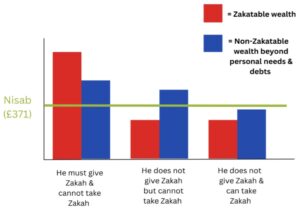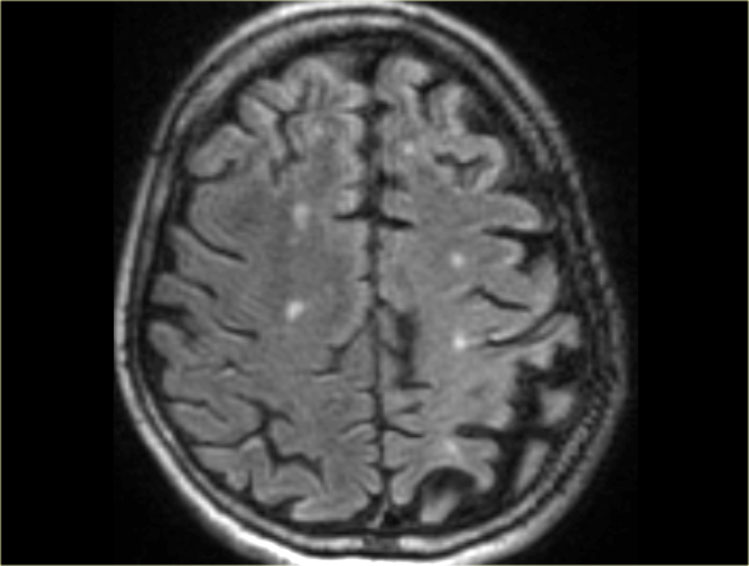
Can I give Zakāh to someone who is in debt and How do I decide if they are a worthy recepient?
Question: Who can Zakāh be given to and how

Download the pdf here:
Question:
What is the ruling on ṣalāh for people with cognitive disabilities such as dementia?
In the Name of Allah, the Most Gracious, the Most Merciful.
As-salāmu ‘alaykum wa-raḥmatullāhi wa-barakātuh
We ask Allah to grant strong faith, patience, and a full recovery from all afflictions.
In Islam, there is a profound sense of care and regard for individuals facing illness or injuries, particularly in matters of obligatory actions such as Ṣalāh. Before delving into the specific guidelines regarding situations when Ṣalāh becomes obligatory for someone who is unwell, it is strongly encouraged to support and motivate individuals with illnesses or disabilities to perform Ṣalāh whenever it can be done without causing excessive discomfort or harm.[i]
Allah ﷻ says in the Qur’an:
“Allah does not burden a soul beyond that it can bear.”[ii]
“Fear Allah as much as you are able.”[iii]
Both verses lay down the principle that obligations in Islam are tied to a person’s capacity.
The Prophet ﷺ also emphasised leniency and adjustment in worship:
“When I command you to do something, do of it as much as you can.”[iv]
He ﷺ also said: “The pen has been lifted from three: from the sleeper until he wakes, from the child until he reaches puberty, and from the insane until he regains sanity.” [v]
Categories Of Individuals
Individuals affected with a degree of cognitive impairment as seen in dementia and autism typically fall under one of two categories [vi]:
1. Individuals Who Have Permanently Lost Mental Capability
They may appear awake and responsive but lack awareness of time, place, or coherent thought. This group includes individuals who have been assessed as lacking capacity by a qualified medical professional, using cognitive or functional assessments such as the MMSE[vii] and MoCA,[viii] or other neurocognitive assessments used by specialists. For such individuals, there are two possibilities:
a. Continuous Illness
If the illness persists for more than six consecutive obligatory Ṣalāhs, and the sixth Ṣalāh time passes without recovery, these individuals are exempt from Ṣalāh. They are not required to make up any missed Ṣalāhs, even if they later regain their mental faculties. If they pass away during this period, there is no need to give fidya (compensation) for the missed Ṣalāhs.[ix]
Example: A person experiences delirium (a temporary state of confusion and disorientation that can occur, for instance, in elderly patients during illness), suppose this delirium begins at Zuhr on Monday and persists without improvement until after ʿAṣr on Tuesday, after which the person regains clarity. They are not required to make up the missed Ṣalāhs during that period, since they lacked mental capacity throughout.
b. Non-Continuous Illness
If an individual with prolonged illness experiences random short periods of coherence, this does not obligate Ṣalāh.[x]
If the recovery occurs at a fixed and reliable time each day, to the extent that medical professionals judge them mentally capable, they are obliged to perform the current Ṣalāh.[xi] If they have missed six or more Ṣalāhs between the times they are mentally able, they will not need to make them up. If they have missed fewer than six Ṣalāhs, then they must make them up.[xii]
If such a person fears they will not be able to make up their missed Ṣalāhs before passing away, it becomes necessary for them to draft a will instructing for Fidya to be given.
Example: A patient with dementia becomes consistently alert and coherent around 2 p.m. each day, as confirmed by their doctor. They must pray the current Ṣalāh and make up any missed prayers from 2 p.m. of the previous day until the present. (Clinically, some patients with cognitive disorders show predictable fluctuations in alertness – for instance, being clearer in the morning and more confused in the evening, a pattern known as “sundowning.”)
2. Individuals Whose Mental Capabilities Are Intact or Partially Intact
This includes individuals whose condition does not reach the threshold of mental incapacity as defined by medical specialists. For example, as autism is a neurodevelopmental condition, most individuals retain full cognitive awareness and decision-making ability, even if they struggle with communication or routine changes. Such individuals are not exempt from Ṣalāh; they remain obliged to perform it.
However, in cases where a person has a high level of autism and lacks the mental capacity to understand the concept of Ṣalāh, it is often accompanied by other significant cognitive or functional impairments. In such circumstances, it is necessary to seek professional medical help to determine the level of understanding and capacity. If medical experts confirm that the person does not have the ability to comprehend or perform Ṣalāh meaningfully, they would be exempt from the obligation.
If they miss Ṣalāh due to distraction, behavioural challenges, or neglect, they must make it up as soon as possible. If nearing end of life and unable to complete missed Ṣalāhs, they should write a will for fidya to be given. If they pass away without such a will, their heirs may give fidya on their behalf.[xiii]
Relevant Scientific Information
Dementia: According to the World Health Organization (WHO, 2024), dementia affects over 55 million people worldwide, with Alzheimer’s disease being the most common cause. Cognitive decline can be gradual, meaning some individuals may retain partial sanity for years.
Autism: Autism Spectrum Disorder (ASD) in itself does not constitute a loss of intellect or capacity. The majority of autistic individuals (particularly those without coexisting intellectual disability) possess normal or above-average cognitive ability and are therefore religiously accountable (mukallaf) once they reach puberty.
However, autism can overlap with learning disabilities or other neurodevelopmental conditions, and in some cases may coexist with intellectual disability, resulting in partial or complete loss of mental capacity. Such matters should be evaluated by a qualified psychiatrist or specialist clinician to determine the individual’s level of understanding and responsibility.
Mild Dementia (Early Stage) – corresponds to an MMSE score in the range of 21–26
At this stage, the person may suffer from forgetfulness, mood changes, or difficulty with complex tasks, but they remain aware of Allah, time, and place.
The ruling in this case is that Ṣalāh remains obligatory upon them. If the person misses prayers due to distraction or forgetfulness, they must make them up. It is the duty of the family to encourage and remind them to pray, while also supporting them with gentleness and without causing distress.
Moderate Dementia (Middle Stage) – corresponds to an MMSE score of 10–20.
At this stage, the individual may experience greater memory loss, confusion about time or place, and increasing difficulty with daily tasks. Although they may be disoriented, they may still have periods of clarity. The ruling in this case is as follows:
Severe Dementia (Late Stage) – corresponds to an MMSE score below 10
At this stage, the person is unable to recognise close family members, may have little or no communication, may be bedridden, and is completely dependent on others for care. The ruling in this case is that they are treated like one who is unconscious or insane and are therefore no longer accountable for Ṣalāh. They are not required to perform prayers, and any prayers missed during this stage do not need to be made up. Furthermore, no fidya is due if they pass away while in this state.[xiv]
As the boundaries between cognitive impairment, loss of capacity, and mental awareness can vary from person to person, it is advisable, if unsure, to consult a qualified psychiatrist or specialist clinician to fully determine an individual’s mental and cognitive state before making any religious or medical rulings.
And Allah Ta’āla Knows Best
Answered by: (Maulana) Yusuf Dalal
Checked & Approved By
(Mufti) Muadh Chati
[i]يأَيُّهَا ٱلَّذِينَ ءَامَنُواْ ٱسۡتَعِينُواْ بِٱلصَّبۡرِ وَٱلصَّلَوٰةِۚ إِنَّ ٱللَّهَ مَعَ ٱلصَّٰبِرِينَ (سورة البقرة، آية 153)
[ii] لَا يُكَلِّفُ ٱللَّهُ نَفْسًا إِلَّا وُسْعَهَا ۚ لَهَا مَا كَسَبَتْ وَعَلَيْهَا مَا ٱكْتَسَبَتْ ۗ رَبَّنَا لَا تُؤَاخِذْنَآ إِن نَّسِينَآ أَوْ أَخْطَأْنَا ۚ رَبَّنَا وَلَا تَحْمِلْ عَلَيْنَآ إِصْرًۭا كَمَا حَمَلْتَهُۥ عَلَى ٱلَّذِينَ مِن قَبْلِنَا ۚ رَبَّنَا وَلَا تُحَمِّلْنَا مَا لَا طَاقَةَ لَنَا بِهِۦ ۖ وَٱعْفُ عَنَّا وَٱغْفِرْ لَنَا وَٱرْحَمْنَآ ۚ أَنتَ مَوْلَىٰنَا فَٱنصُرْنَا عَلَى ٱلْقَوْمِ ٱلْكَـٰفِرِينَ (سورة البقرة، آية 286)
[iii] فَاتَّقُوا اللَّهَ مَا اسْتَطَعْتُمْ (سورة التغابن آية 16)
[iv] حَدَّثَنَا إِسْمَاعِيلُ، حَدَّثَنِي مَالِكٌ، عَنْ أَبِي الزِّنَادِ، عَنِ الأَعْرَجِ، عَنْ أَبِي هُرَيْرَةَ، عَنِ النَّبِيِّ صلى الله عليه وسلم قَالَ “ دَعُونِي مَا تَرَكْتُكُمْ، إِنَّمَا هَلَكَ مَنْ كَانَ قَبْلَكُمْ بِسُؤَالِهِمْ وَاخْتِلاَفِهِمْ عَلَى أَنْبِيَائِهِمْ، فَإِذَا نَهَيْتُكُمْ عَنْ شَىْءٍ فَاجْتَنِبُوهُ، وَإِذَا أَمَرْتُكُمْ بِأَمْرٍ فَأْتُوا مِنْهُ مَا اسْتَطَعْتُمْ ”. (صحيح البخاري 7288 مكتبة البشرى)
[v] وَعَنْ عَلِيٍّ رَضِيَ اللَّهُ عَنْهُ قَالَ: قَالَ رَسُولُ اللَّهِ صَلَّى اللَّهُ عَلَيْهِ وَسَلَّمَ: ” رُفِعَ الْقَلَمُ عَنْ ثَلَاثَةٍ: عَنِ النَّائِمِ حَتَّى يَسْتَيْقِظَ وَعَنِ الصَّبِيِّ حَتَّى يَبْلُغَ وَعَنِ الْمَعْتُوهِ حَتَّى يعقل “. (سنن أَبُو دَاوُد ج2 ص1204 ط: مكتبة البشرى)
[vi] ونص التنزيل قد أسقط التكلف عمن لا يقدر على الفعل ولا يطيقه. وزعم قوم جُهَّالٌ أن نَسَبَتْ إلى الله فعل السَّفَهِ والعَبَثِ ، فزعموا أن كل ما أمر به أحـد مـن هـل التكليف أو نهي عنه، فالمأمور به منه غير مقدور على فعله والمنهي عنه غير مقدور على ما قد تركه . وقد أكذِّبَ الله قبلهم بما نص عليه من أنه يكلف الله نفساً إلا وسعها، مع دلت عليه العقول من قبح تكليف ما لا يطاق وأن العالم بالقبيح المستغني عن فعله لا يقع منه فعل القبيح، ومما يتعلق بذلك من الأحكام سقوط الفَرْض عن المكلفين فيما لا تتسع له قواهم، لأن الوُسْعَ هو دون الطاقة، وأنه ليس عليهم استفراغ المجهود في أداء الفرض نحو الشيخ الكبير الذي يشق عليه الصوم ويؤدّيه إلى ضرر يلحقه في جسمه: وإن لم يَخْشَ الموت بفعله فليس عليه صومه لأن الله لم يكلفه إلا ما يتسع لفعله ولا يبلغ به حال الموت. وكذلك المريض الذي يَخْشَى ضرر الصوم وضرر استعمال الماء، لأن الله قد أخبر أنه لا يكلف أحداً إلا ما اتسعت له قدرته وإمكانه دون ما يضيق عليه ويُعْنِتُه ؛ وقال الله تعالى : ولو شاء الله لأعنتكم) [البقرة: ۲۲۰] وقال في صفة النبي ﷺ : عزيز عليه ما عنتم [التوبة : ۱۲۸]. فهذا حكم مستمر في سائر أوامر الله وزواجره ولزوم التكليف فيها على ما يتسع له ويقدر عليه .
)وأحكام القرآن للجصاص 1/ 652 ط دار الكتب العلمية)
الأهلية ضربان: أهلية وجوب وأهلية أداء… وأهلية الأداء نوعان: كامل للزوم العهدة وقاصر لا يصلح للزوم العهدة… أما القاصر: فييثبت بقدرة البدن إذا كانت قاصرةً قبل البلوغ، وكذلك بعد البلوغ فيمن كان معتوهًا لأنه بمنزلة الصبيّ، لأنه عاقل لم يعتدل عقله. وأصل العقل يُعرف بدلالة العيان، وذلك أن يختار المرء ما يصلح له، بدرك العواقب المستورة فيما يأتيه ويَذَرُه ، وكذلك القصور يُعرف بالامتحان. فأما الاعتدال: فأمر يتفاوت فيه البشر، فإذا ترقى عن رتبة القصور: أقيم البلوغ مقام الاعتدال في أحكام الشرع، والأحكام في هذا الباب منقسمة على ما مر.
العوارض نوعان: سماوي، ومكتسب.
أما السماوي: فهو الصغر، والجنون، والعته، والنسيان، والنوم، والإغماء ، والرِّق، والمرض، والحيض، والنفاس، والموت. وأما المكتسب فإنه نوعان منه، ومن غيره. أما الذي منه : فالجهل، والسكر، والهَزْل، والسفه، والخطأ، والسفر. وأما الذي من غيره: فالإكراه بما فيه إلجاء، وبما ليس فيه إلجاء. أما الجنون: فإنه في القياس مسقط للعبادات كلها؛ لأنه ينافي القدرة، فينعدم به الأداء، فينعدم الوجوب؛ لانعدامه، لكنهم استحسنوا فيه إذا زال قبل الامتداد، فجعلوه عفواً، وألحقوه بالنوم والإغماء، وذلك أنه لما كان منافياً لأهلية الأداء : كان القياس فيه ما قلنا، ألا يُرى أن الأنبياء عليهم الصلاة والسلام عصموا عنه. لكنه إذا لم يمتد لم يكن موجباً حرجاً على ما قلنا.
وقد اختلفوا فيه، فقال أبو يوسف رحمه الله : هذا إذا كان عارضاً غير أصلي : ليلحق بالعوارض، فأما إذا بلغ الصبي مجنوناً : فإذا زال: صار في معنى الصبي إذا بلغ. وقال محمد رحمه الله : هو والأول سواء، واعتبر حاله فيما يزول عنه، ويُلحق بأصله. وهو في أصل الخلقة متفاوت بين جنون مديد وقصير، فيُلحق هذا الأصل في الحكم الذي لم يستوعبه بالعارض، وذلك في الجنون الأصلي إذا زال قبل انسلاخ شهر رمضان
وحد الامتداد يختلف باختلاف الطاعات :فأما في الصلوات فبأن يزيد على يوم وليلة باعتبار الصلوات عند محمد رحمه الله ؛ لتصير ستاً، فيدخل في حد التكرار.
أقام أبو حنيفة وأبو يوسف رحمهما الله الوقت فيه مقام الصلاة ؛ تيسيراً، فاعتبرا الزيادة بالساعات
)أصول البزدوي 710-725 ط دار السراج)
والنوع الثاني: أهلية أداء وهي نوعان: قاصرة تبتني على القدرة القاصرة من العقل القاصر والبدن القاصر، فإن الأداء يتعلق بقدرتين: قدرة فهم الخطاب، وهي بالعقل، وقدرة العمل به، وهي بالبدن، فإذا كان تحقق القدرة بهما يكون كمالها بكمالهما وقصورها بقصورهما، فالإنسان في أوّل أحواله عديم القدرتين، ولكن له استعدادهما، فتحصلان له شيئًا فشيئًا إلى أن يبلغ كالصبي العاقل، فإن بدنه قاصر وإن كان عقله يحتمل الكمال، والمعتوه البالغ فإن عقله قاصر وإن كان بدنه على الأهلية القاصرة صحة الأداء على معنى أنه لو أدّى يكون صحيحًا وإن لم يجب عليه. أي بالخطاب أي بالعقل والبدن العقل والبدن كاملاً، وتبتني عليها، أي وكاملة: تبتني على القدرة الكاملة من العقل الكامل والبدن الكامل،
(نور الانوار ج 2, ص 149)
[vii] Folstein, M., Folstein, S.E., McHugh, P.R. (1975). “Mini-Mental State” a Practical Method for Grading the Cognitive State of Patients for the Clinician. Journal of Psychiatric Research
https://turkpsikiyatri.org/arsiv/mmse_folstein_mchugh.pdf
[viii] Nasreddine, Z. S., Phillips, N. A., Bédirian, V., Charbonneau, S., Whitehead, V., Collin, I., Cummings, J. L., & Chertkow, H. (2005). The Montreal Cognitive Assessment (MoCA): A Brief Screening Tool For Mild Cognitive Impairment. Journal of the American Geriatrics Society
https://www.concordia.ca/content/dam/artsci/research/caplab/docs/Julayanontetal2013MoCAreview.pdf
[ix] قلت: أرأيت رجلاً مريضاً أغمي عليه يوماً وليلة ثم أفاق؟ قال: عليه أن يقضى ما فاته من الصلاة. قلت: فإن أغمى عليه أياما؟ قال: لا يقضي شيئاً مما ترك، قلت من أين اختلفا؟ قال: للأثر الذي جاء عن ابن عمر من عبد الله بن عمر محمد قال أخبرنا أبو حنيفة عن حماد عن إبراهيم عن ابن عمر رضي الله عنهما في المغمى عليه يوماً وليلة قال يقضي. (الأصل ج 1 ص 190 دار ابن حزم)
قال أبو حنيفة في الرجل يمرض فيغمى عليه أنه إذا كان أغمي عليه يوماً وليلة أو أقل من ذلك قضى من صلاته، وإن أغمي عليه أكثر من ذلك لم يقض إلا الصلاة التي أفاق في وقتها . (كتاب الحجة على أهل المدينة ج 1 ص 112 عالة الكتب)
ومن أغمي عليه أو جن يومًا وليلة ثم أفاق يقضي ما ترك من الصلوات، وإن كان أكثر من يوم وليلة لا يقضي لحديث ابن عمر رضي الله عنهما: أنه أغمي عليه أكثر من يوم وليلة فلم يقضيهن، وعمار بن ياسر أغمي عليه أقل من يوم وليلة فقضاهن، ولأنه متى كثر الإغماء تكثر الفوائت فيتضاعف الواجب فيحرج في القضاء، ومتى قل لا يحرج فجعلنا الفاصل بينهما دخول الفوائت في حد التكرار، ثم محمد في ظاهر الرواية اعتبر أكثر من يوم وليلة بأوقات الصلاة وهما اعتبرا بالساعات حتى لو أغمي عليه قبل الزوال ثم أفاق من الغد بعد الزوال عندهما لا قضاء عليه، وعند محمد عليه القضاء ما لم يدخل وقت الصلاة السابعة؛ لأن المسقط للقضاء وقوعه في الحرج وإنما يقع في الحرج متى دخلت الفوائت في حد التكرار. (المحيط الرضوي ١/٣٧٢)
وإذا أُغمي على الرجل يوما وليلة، قضى الفوائت، وإن أغمي عليه أكثر من يوم وليلة ، لم يقض. (المختصر الكرخي ١/١٢٢)
[x] وقيّده بدوام الإغماء لأنه إذا كان يفيق فيها فإنه ينظر، فإن كان لإفاقته وقت معلوم مثل أن يخف عنه المرض عند الصبح مثلاً فيفيق قليلاً ثم يعاوده فيغمى عليه تعتبر هذه الإفاقة فيبطل ما قبلها من حكم الإغماء إذا كان أقل من يوم وليلة، وإن لم يكن لإفاقته وقت معلوم لكنه يفيق بغتة فيتكلم بكلام الأصحاء ثم يغمى عليه فلا عبرة بهذه الإفاقة، (البحر الرائق، ج 2, ص208, دار الكتب العلمية)
وفى “نوادر المعلى”، عن أبي يوسف رحمه الله تعالى: معتوه يفيق أحيانًا، إلا أنه ليس لإفاقته وقت معلوم، إن كان في أكثر حالاته معتوها، فهو في جميع حالاته بمنزلة المطبق عليه،
[xi] وإن كان لإفاقته وقت معلوم فهو في حال إفاقته بمنزلة الصحيح، (المحيط البرهاني، ج 2، ص 179)
[xii] أما الجنون: فإنه في القياس مسقط للعبادات كلها؛ لأنه ينافي القدرة، فينعدم به الأداء، فينعدم الوجوب؛ لانعدامه، لكنهم استحسنوا فيه إذا زال قبل الامتداد، فجعلوه عفواً، وألحقوه بالنوم والإغماء، وذلك أنه لما كان منافياً لأهلية الأداء : كان القياس فيه ما قلنا، ألا يُرى أن الأنبياء عليهم الصلاة والسلام عصموا عنه. لكنه إذا لم يمتد لم يكن موجباً حرجاً على ما قلنا.
وقد اختلفوا فيه، فقال أبو يوسف رحمه الله : هذا إذا كان عارضاً غير أصلي : ليلحق بالعوارض، فأما إذا بلغ الصبي مجنوناً : فإذا زال: صار في معنى الصبي إذا بلغ. وقال محمد رحمه الله : هو والأول سواء، واعتبر حاله فيما يزول عنه، ويُلحق بأصله. وهو في أصل الخلقة متفاوت بين جنون مديد وقصير، فيُلحق هذا الأصل في الحكم الذي لم يستوعبه بالعارض، وذلك في الجنون الأصلي إذا زال قبل انسلاخ شهر رمضان
وحد الامتداد يختلف باختلاف الطاعات :فأما في الصلوات فبأن يزيد على يوم وليلة باعتبار الصلوات عند محمد رحمه الله ؛ لتصير ستاً، فيدخل في حد التكرار.
أقام أبو حنيفة وأبو يوسف رحمهما الله الوقت فيه مقام الصلاة ؛ تيسيراً، فاعتبرا الزيادة بالساعات
)أصول البزدوي 710-725 ط دار السراج)
[xiii] (ولو مات وعليه صلوات فائتة) أي بأن كان يقدر على أدائها ولو بالإيماء، فيلزمه الإيصاء بها وإلا فلا يلزمه (حاشية ابن عابدين ج 4, ص 453, دار التقافة والتراث)
ثم اعلم أنه إذا أوصى بفدية الصوم يحكم بالجواز قطعاً؛ لأنه منصوص عليه، وأما إذا لم يُوصِ فتطوع بها الوارث فقد قال “محمد” في “الزيادات”: ((إنه يُجزيه إن شاء الله تعالى))، فعلق الإجزاء بالمشيئة لعدم النص، وكذا علقه بالمشيئة فيما إذا أوصى بفدية الصلاة؛ لأنهم الحقوها بالصوم احتياطاً؛ لاحتمال كون النص فيه معلولاً بالعجز، فتشمل العلة الصلاة، وإن لم يكن معلولاً تكون الفدية براً مبتدأ يصلح ماحياً للسيئات، فكان فيها شبهة كما إذا لم يوص بفدية الصوم، فلذا جزم “محمد” بالأوَّلِ ولم يجزم بالأخيرين، فعلِمَ أَنه إذا لم يُوصِ بفدية الصلاة فالشبهة أقوى. (حاشية ابن عابدين ج 4, ص 454, دار التقافة والتراث)
في الملتقط»: ولو أمر الأب ابنه أن يقضي عنه صلوات وصيام أيام، لا يجوز عندنا، كذا في «التتارخانية». إذا مات الرجل وعليه صلوات فائتة، فأوصى بأن تُعطى كفَّارة صلواته ، يُعطى لكل صلاة نصف صاع من بر، وللوتر نصف صاع، ولصوم يوم نصف صاع من ثُلُثِ ماله. وإن لم يترك مالا ، يستقرض ورثته نصف صاع، ويدفع إلى مسكين، ثم يتصدق المسكين على بعض ورثته ، ثم يتصدَّقُ ثم وثم حتى يتم لكل صلاة ما ذكرنا، كذا في «الخلاصة».
وفي فتاوى الحجة : وإن لم يوص لورثته وتبرع بعض الورثة، يجوز ، ويدفع عن كل صلاة نصف صاع حنطة منوين. ولو دفع جملة إلى فقير واحد جاز، بخلاف كفارة اليمين وكفارة الظهار وكفَّارة الإفطار. وفي «الولوالجية»: ولو دفع عن خمس صلوات تسع أمنان لفقير واحد، وَمُنَّاً لفقير واحد، اختار الفقيه : أنه يجوز عن أربع صلوات، ولا يجوز عن الصلاة الخامسة .
وفي اليتيمة»: سُئِل الحسن بن علي الله عن الفدية عن الصلوات في مرض الموت ، هل يجوز ؟ فقال : «لا». وسئل حمير الوبري وأبو يوسف بن محمد عن الشيخ الفاني : هل تجب عليه الفدية عن الصلوات كما تجب عليه عن الصوم وهو حي ؟ فقال : لا ، كذا في التتارخانية». (الفتاوى الهندية ج 1, ص 184, دار الفكر)
رجل مات وعليه صلوات، وأوصى بأن يُطعموا عنه لصلواته ، اتفق المشايخ : على أنه يجب تنفيذ هذه الوصية من ثلث ماله، ويُعطى لكل مكتوبة نصف صاع من الحنطة، وللوتر كذلك. واختلفوا : أنه هل يقوم الإطعام مقام الصلاة ؟ قال محمد بن مقاتل ومحمد بن سلمة رحمهما الله تعالى : يقوم، وقال البلخي رحمه الله تعالى : لا يقوم . وكذا قال علماؤنا رحمهم الله تعالى : أن الطعام يقوم مقام صوم رمضان وصوم النذر . (فتاوى قاضيخان ج 1, ص 72, دار الفكر)
[xiv] MMSE score, for example, denotes the severity of cognitive impairment as follows: mild Alzheimer’s disease: MMSE 21–26, moderate Alzheimer’s disease: MMSE 10–20, moderately severe Alzheimer’s disease: MMSE 10– 14, severe Alzheimer’s disease: MMSE less than 10. In clinical practice a variety of measures are used to assess disease severity, often in conjunction with clinically based assessments such as biographical interview.
(Bond, M., Rogers, G., Peters, J., Anderson, R., Hoyle, M., Miners, A., Moxham, T., Davis, S., Thokala, P., Wailoo, A., Jeffreys, M., & Hyde, C. (2012). The effectiveness and cost-effectiveness of donepezil, galantamine, rivastigmine and memantine for the treatment of Alzheimer’s disease (review of Technology Appraisal No. 111): a systematic review and economic model. Health Technology Assessment (Winchester, England), 16(21), 1–469. https://doi.org/10.3310/hta16210
| Stage | MMSE Range | Medical Description | Islamic Ruling on Ṣalāh |
| Early (Mild Alzheimer’s) | 21–26 | Forgetfulness, difficulty with planning, may repeat questions, but generally aware of self, family, and surroundings. Can still live semi independently. | Ṣalāh is obligatory. Family should support, remind, and gently encourage. Patient is still considered fully responsible (ʿāqil). |
| Middle (Moderate Alzheimer’s) | 10–20 | Increasing disorientation (time/place), struggles with daily activities, needs supervision, mood/behaviour changes, may forget familiar people. | Conditional obligation. If the patient has capacity ( meaning they are able to understand, retain, and use information to make a decision about prayer) then they remain obliged to perform ṣalāh. If their confusion or loss of capacity becomes dominant, they are exempt during those periods. Family members are advised to show patience and understanding. |
| Late (Severe Alzheimer’s) | ≤ 9 | Severe memory loss, little or no speech, unable to recognise family, fully dependent for all care, bedridden. | Totally exempt. Treated like the majnoon (legally insane). No requirement for prayer or making up missed prayers. Family may compensate with charity or other good deeds on their behalf. |

Question: Who can Zakāh be given to and how

Question: Someone is visiting London (from another country) for

Question: If a woman gets her period at the

Question: Are WHOOP bands permissible in Ihraam? Answer: In

Question: I ordered some magnesium gummies, I checked the

By Qari Mouhammad Dodaki – Director of Al-Utruj Academy